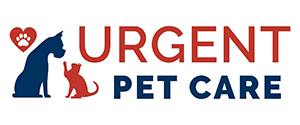- Do you subscribe to Dharma Dog Training’s Newsletter? You should.
- A Unique Campaign from The Humane Society of the United States
- Rabid bats in Omaha- Stay safe, prepared with these tips
- Springtime Activities in Omaha
- Mill Dog Monthly from Bailing Out Benji
- World Spay Day, Legislative Alert in Nebraska
- Attend the Nebraska Rescue Council’s monthly meeting this Saturday
- Five Hard-to-Ignore Reasons to Adopt!
- Paws in Pink to Benefit Breast Cancer Foundation
- VCA, Inc. Acquires MidWest Vet Specialists from Kansas State University
Be Smart & Savvy When Choosing Food for Your Pet

Caring for your pet comes with an endless list of decisions. So let us help you choose the best diet for your pet.
REGULATIONS & CERTIFICATIONS
Knowing that pet food is regulated by the Food & Drug Administration (FDA) will ease your mind. All of the details can be found on their website.
GETTING ACCURATE INFORMATION
You’ll find that researching a diet for your cat via the Internet can be rife with pitfalls and misinformation, so arm yourself with these critical research tools:
Always talk to your veterinarian. They should be your go-to source for your pet’s health information.- Consider consulting with a certified pet nutritionist. The American College for Veterinary Nutrition joined the American College of Veterinary Internal Medicine. Visit their site to find a Board Certified Veterinary Nutritionist near you. (link 3)
- Be savvy about recognizing the difference between a marketing claim and an evidence-based statement, and beware of persuasive declarations or promises.
- Check that the information or claims about pet food are from a credible source and not just the company trying to sell you their product. Veterinary organizations, humane societies, government organizations, and universities are often examples of trustworthy sources of information. Visit the Petfoodology website from the Cummings School of Veterinary Medicine at Tufts University for numerous well-researched and helpful articles about pet food. (link 4) The Pet Nutrition Alliance is another trusted source of all you need to know about pet food! (link 5)
You’ll have many matters to consider when deciding which diet is ideal for your animal.
BREED, SIZE & STAGE OF LIFE
Pet food, like people food, is not a one-size-fits-all issue, so make sure you choose the appropriate food for your pet’s breed, size, and stage of life. Large-breed dogs will require a slightly different diet than small-breed dogs. And kittens will require a different diet than cats who have been around the sun a bunch of times.
WET OR DRY?
Pet food comes in wet form (canned) and dry form (bagged). Both can be nutritious choices for your pet. Wet food may be best for cats with constipation, urinary health complications, or weight issues. However, it can cost more and be a messy mealtime for you. Dry food costs less, is easier to dish out, and can be used in puzzles and toys to keep your cat active and curious. You may have heard that dry food supports dental health, but the research on this topic is debatable. Regular brushing and vet check-ups are the best way to keep your cat’s mouth healthy. Wet food may be best for dogs who are “picky” eaters or have mouth issues such as missing teeth.
INGREDIENTS
Your loyal dog and aloof cat deserve all the best food ingredients, just like you. But did you know that most pet owners actually care MORE about their pet’s diet than their own? Choose foods with quality ingredients like vegetables, grains, and lean proteins that contribute essential vitamins, minerals, and nutrients.
SPECIAL DIETS
Beyond the daily diet of a healthy pet, pets with chronic ailments like diabetes, kidney disease, or chronic diarrhea may require specially prescribed diets.
You may have read about special lifestyle diets for pets, such as raw, vegan, or grain-free diets. You must make sure these diets match your pet’s health needs. For instance, unlike dogs, cats are obligate carnivores, so meat must be included in their diets. Raw diets for dogs can be beneficial but can also carry risks like an excessive amount of certain minerals and an increased risk of introducing salmonella to your home. Do your research and choose the diet that is optimal for your pet.
ALLERGIES
Some pets will develop food allergies. When my friend returned from a vacation and found her cat covered in sores, she figured they were due to a fight or bites. But her vet asked if she’d recently switched the cat’s food, and indeed she had! When you change your pet’s diet, watch them for allergic reactions like skin issues or tummy troubles.
Choosing food for your pet is an act of love. But it’s an act that must be done responsibly too, so check your sources, do your research, and fill their dish to the appropriate brim!
Link 2: AAFCO – https://www.aafco.org/
Link 3: ACVIM – https://www.acvim.org/home
Link 4: Tufts – https://vetnutrition.tufts.edu/petfoodology/
Link 5: Pet nutrition alliance – https://petnutritionalliance.org/
Latest News
-
3 Tips for Pet Owners on Training Rescue Dogs
Owning a rescue dog can take some work compared to...
- Posted 2 weeks ago
- 0
-
Choosing the Right Pet for Your Lifestyle
Are you thinking about getting a pet but unsure what...
- Posted 4 weeks ago
- 0
-
How to Make Your Rescue Pet as Comfortable as Possible
Did you bring home a new pet from a shelter...
- Posted 2 months ago
- 0
-
How Having A Pet Can Change Your Life
Having a pet can open your heart in ways that...
- Posted 7 months ago
- 0
-
How To Improve The Life Of Your Senior Pet
Do you have an elderly fur baby and want to...
- Posted 7 months ago
- 0
-
Springtime Activities To Enjoy With Your Furry Friends
Are you preparing for warmer weather and want some ideas...
- Posted 8 months ago
- 0
-
Pros And Cons Of Microchipping Your Pets
Have you considered whether your pets should be microchipped and...
- Posted 9 months ago
- 0

















You must be logged in to post a comment Login